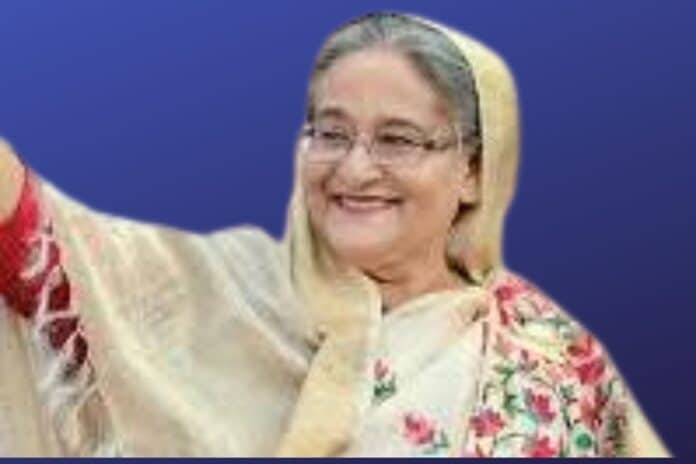Sheikh Hasina, the long-standing Bangladeshi Prime Minister, did not formally resign before seeking refuge in India earlier this week, according to her son and adviser, Sajeeb Wazed. This statement came as anti-government demonstrators advanced towards her official residence.
Hasina has been in New Delhi since Monday, following a nationwide uprising that resulted in approximately 300 fatalities, many of whom were students. This event marked the end of her uninterrupted 15-year leadership of the nation of 170 million inhabitants.
Wazed informed Reuters from Washington that his mother had intended to make a statement and tender her resignation, but the rapidly unfolding events prevented her from doing so. He asserted that constitutionally, Hasina remains the Prime Minister of Bangladesh.
Although the president dissolved parliament after consulting military leaders and opposition politicians, Wazed suggested that the establishment of a caretaker government without the prime minister’s formal resignation could be legally contested.
Wazed confirmed that Hasina’s Awami League party would participate in the upcoming election, which he stated must occur within three months. He expressed confidence in the party’s potential victory or its readiness to serve as the opposition.
He welcomed a recent statement from Khaleda Zia, leader of the main opposition Bangladesh Nationalist Party (BNP), advocating for reconciliation rather than retribution following Hasina’s departure. Wazed emphasized the importance of cooperation, whether through a unity government or not, to restore and maintain democratic processes in Bangladesh.
Regarding his own political future, Wazed indicated he would consider becoming the Awami League’s prime ministerial candidate if the party requested it, noting that his mother had planned to retire after her current term.
আমি এই কঠিন সময়ে শান্তি বজায় রাখার জন্য সকল নাগরিকের কাছে আবেদন করছি@bdnews24 @BDMOFA
— Sheikh Hasina (@ShiekhHasina) August 7, 2024
Wazed stated that his mother was prepared to face legal proceedings in Bangladesh, as demanded by student protesters. He maintained her innocence, suggesting that any illegal actions within the government were not directly ordered by Hasina.
He acknowledged that some police officers had used excessive force during the protests but insisted that the government had taken immediate steps to address the situation, including suspending officers who had fired at students.
Shekh Hasina’s son Wazed’s Return: Steering Bangladesh Toward Stability and Justice Amid Turmoil
Wazed’s decision to return to Bangladesh is like a seasoned pilot planning to land his plane, highlighting the crucial role of flight controllers in ensuring a safe and stable landing. Wazed’s determination to return to Bangladesh signifies his commitment to playing a pivotal role in the country’s future, akin to a captain steering a ship towards its destination, underlining the significance of strong leadership in guiding the nation’s course. It is evident that Wazed’s conviction in his mother’s innocence reflects the unwavering trust he places in her character, resembling a loyal defender standing firm in support of his leader, reinforcing that any alleged wrongdoing was not directly orchestrated by Hasina.
The admission of excessive force used by some police officers during the protests acknowledges the need for accountability and reform within the law enforcement system, resembling a surgeon’s acknowledgement of surgical errors, emphasizing the importance of learning from mistakes and implementing corrective measures.
By suspending the officers involved in firing at students, the government exhibits its commitment to address the grievances of the protesters, resembling a responsible employer swiftly taking disciplinary action to maintain a harmonious work environment, highlighting the significance of maintaining public trust and ensuring justice. In emphasizing the ongoing relevance of political parties in stabilizing the country, Wazed recognizes their role as catalysts for democratic progress, similar to the wheels of a well-oiled machine working together to propel the nation forward, underscoring the necessity of inclusive governance and collective decision-making.
Wazed concluded by asserting his intention to return to Bangladesh when he chooses, emphasizing the ongoing importance of political parties in stabilizing the country.


